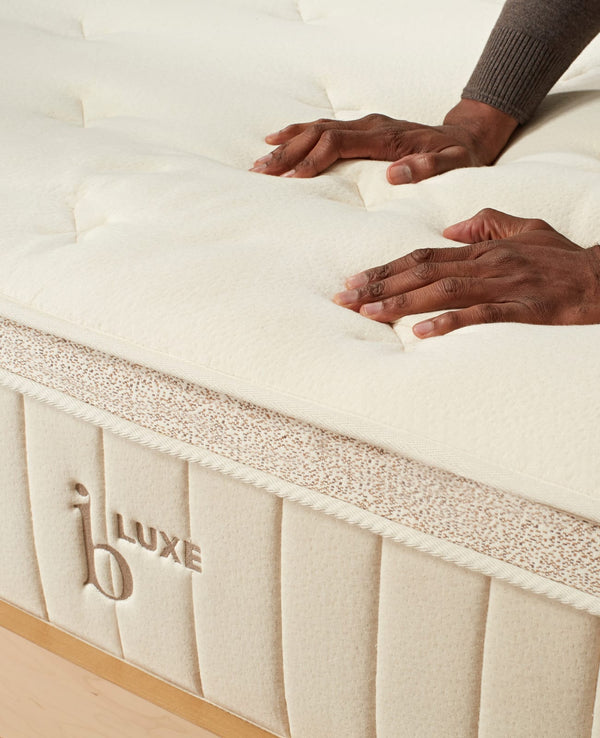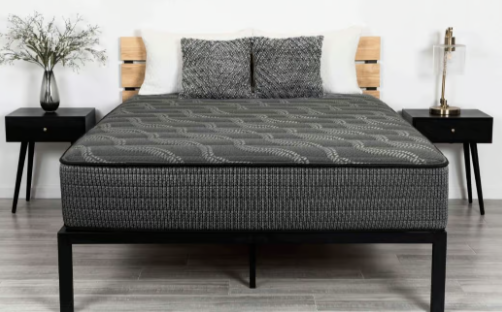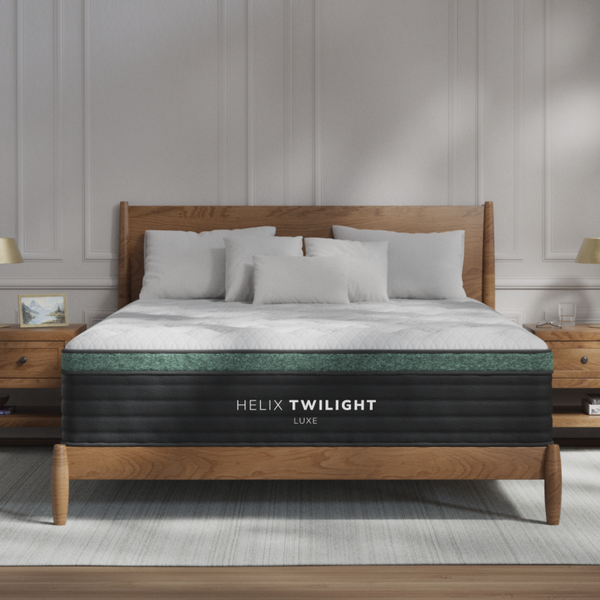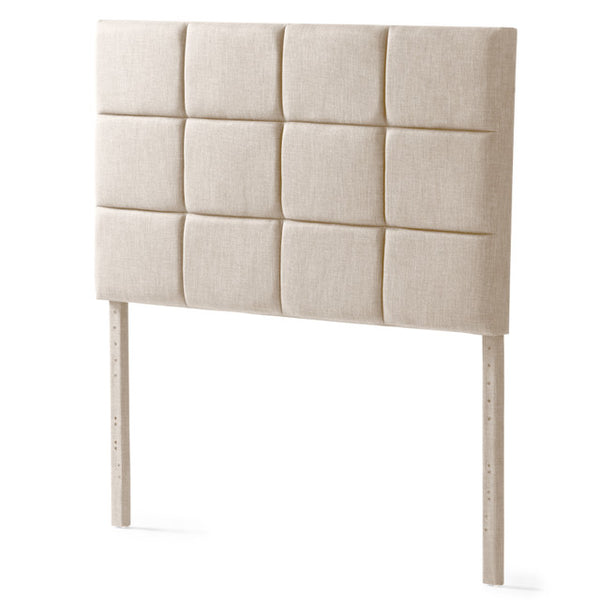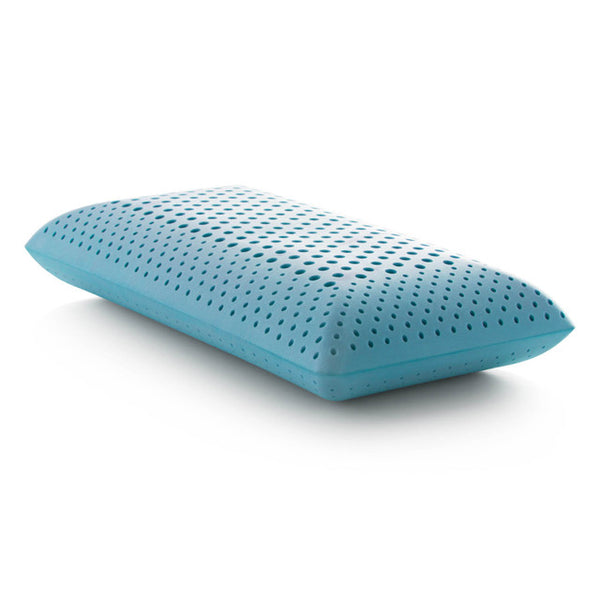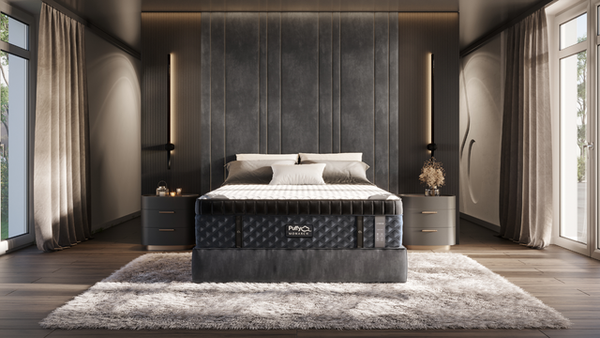
Overview
This blog explores the evolution of sleep technology, focusing on smart mattresses that track sleep quality and promote health through AI integration, temperature regulation, and eco-friendly materials. It highlights the impact of sleep tech on health and mental well-being, and discusses future innovations like virtual reality and adaptive solutions for enhanced sleep experiences.
Frequently Asked Questions
1. What are smart mattresses?
2. How do smart mattresses track sleep quality?
3. What role does artificial intelligence play in sleep technology?
4. How do smart mattresses contribute to health?
5. What sustainability practices are emerging in sleep technology?
As we plunge deeper into the era of advanced technology, our sleeping experience is being revolutionized. It’s not just about a comfortable mattress anymore; technology is redefining how we view rest and relaxation. With the rapid development of smart mattresses, understanding the future of sleep technology is crucial for anyone looking to enhance their nightly rest. In this article, we will explore the latest innovations, emerging trends, and what lies ahead for sleep tech in the world of mattresses.
The Evolution of Sleep Technology
To fully grasp the future of sleep technology in mattresses, it’s important to first look at how far we've come. The mattress industry has evolved from simple springs to complex systems that adjust to our needs. Here’s a brief overview of this evolution:
- Traditional Mattresses: Basic materials like innerspring and foam.
- Memory Foam: Introduced in the 1960s, this material allows for contouring to the body’s shape.
- Adjustable Beds: Consumers can modify the position of the mattress for optimal comfort.
- Smart Mattresses: Equipped with health-monitoring technology that tracks sleep patterns.
The combination of these innovations shows a clear trajectory towards a more integrated and responsive sleeping experience. But what does the future hold?
Smart Mattresses: The Interactive Sleep Solution
The introduction of smart mattresses has taken personalized sleep to the next level. With the ability to track various sleep metrics, these mattresses can help users understand their sleep patterns better. Here’s how:
Sleep Tracking Technology
Most smart mattresses are embedded with sensors that monitor sleep quality, including:
- Time spent in different sleep stages (REM, deep, and light)
- Heart rate and breathing patterns
- Movement throughout the night
By collecting this data, smart mattresses can provide insights into how lifestyle choices affect sleep quality. These insights can help users adjust their habits for improved rest.
Temperature Regulation
Temperature control is another important feature of modern mattresses. As body temperature plays a crucial role in the sleep cycle, many smart mattresses are designed to maintain an optimal sleeping temperature. Some of the technologies include:
- Phase Change Materials: These materials absorb and release heat to maintain a consistent temperature.
- Cooling Gel Infusions: Designed to draw heat away from the body.
This aspect of mattress technology ensures users remain comfortable, reducing the likelihood of restless nights due to temperature fluctuations.
The Role of Artificial Intelligence in Sleep Technology
As we look to the future, artificial intelligence (AI) is set to play a significant role in enhancing our sleep experiences. With the ability to analyze sleep data and make recommendations, AI can be a game-changer.
Personalized Sleep Recommendations
By processing vast amounts of data, AI can provide tailored advice to improve sleep. This might include suggestions for optimal bedtimes, recommended sleep environments, or tips for pre-sleep routines. The ultimate goal is to help individuals make informed decisions to elevate their sleep experience.
Integration with Smart Home Devices
Imagine a smart home where your bedroom optimizes itself for the best sleep quality. AI integration can connect smart mattresses with devices like smart lights, temperature controls, and sound systems, creating the perfect environment for restful sleep. Here’s how:
- Adjusting lighting based on optimal sleep cycles.
- Controlling bedroom temperature for maximum comfort.
- Playing calming sounds or white noise to aid relaxation.
This interconnected approach can minimize distractions and foster an environment conducive to sleep.
Environmental Sustainability in Sleep Technology
As awareness of climate change grows, the mattress industry is also moving towards sustainable practices. Consumers are demanding eco-friendly options, and sleep technology is evolving to meet these needs.
Eco-Friendly Materials
More manufacturers are using sustainable and biodegradable materials, including:
- Natural latex: Sourced from rubber trees, offering durability and comfort.
- Recycled materials: Used in both mattresses and packaging.
By choosing eco-friendly options, consumers not only enhance their sleep experience but also contribute positively to the environment.
Manufacturing Processes
The integration of green technology in the manufacturing process ensures that mattresses are produced with minimal environmental impact. Innovations include energy-efficient machinery and reduced waste practices, making it possible to create high-quality mattresses without harming the planet.
The Impact of Sleep Technology on Health
Investing in sleep technology is not just about comfort — it's about health. Studies have shown that quality sleep can lead to improved overall wellness, and technology is facilitating this in remarkable ways.
Monitoring Health Metrics
Smart mattresses often come equipped with health-monitoring features that can provide insights into an individual's overall health. These metrics can help identify potential issues early on, leading to proactive healthcare measures. Key metrics include:
- Heart rate variability: Can indicate stress and other health conditions.
- Sleep apnea detection: Alerts users to significant interruptions in breathing during sleep.
By tracking these critical indicators, technology supports better health decision-making and promotes a healthier lifestyle.
Enhancing Mental Health
Quality sleep is intrinsically linked to mental health. Disturbed sleep can lead to stress, anxiety, and depression. The integration of calming technologies, such as sound machines and meditation reminders, in smart mattresses can contribute to better mental well-being.
By promoting relaxation and stress relief through advanced features, mattresses of the future will optimize not only physical but also mental health.
A Peek into the Future
As we envision the future of sleep technology, the possibilities are nothing short of exciting. Developers are continuously working to refine and introduce new features that enhance our sleeping experience.
Virtual Reality and Sleep
In the coming years, we may see the introduction of virtual reality (VR) elements designed to assist in achieving better sleep. Imagine immersing yourself in a peaceful environment through VR, helping to lower stress levels before bedtime.
Wearable Technologies
Wearable technologies like smartwatches and fitness trackers are continually advancing. In the future, these devices may integrate more seamlessly with mattresses to provide even more personalized data insights, allowing users to fine-tune their sleep environments down to the finest detail.
Adaptive Sleep Solutions
As data accumulates, mattresses are likely to become more adaptive. The possibility of a mattress that adjusts its firmness or firmness levels based on the user's sleep patterns is on the horizon. Such adaptability can address various sleep concerns effectively and intuitively.
Dream Big for Your Sleep Solutions!
The future of sleep technology in mattresses promises to redefine how we rest and recharge. With smart features, AI integration, sustainable practices, and a focus on health, the mattress of tomorrow is geared towards providing a truly personalized sleep experience. The journey into the future is not just about better sleep but about waking up refreshed, healthier, and more ready to take on the world. Embrace the changes ahead, and you may find your perfect night’s sleep is just around the corner!
Take a moment to explore another user's Shopify or Wix store. Visit their store through this link. Please be aware that this is a promotional link, and we cannot be held responsible for the content of the linked store.

